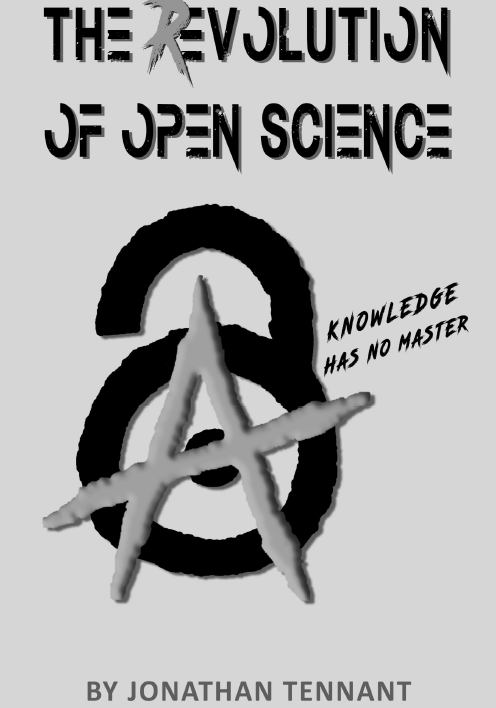In this unforgettable year for the number of deaths of the pandemic the academic and scientific world loses a protagonist and champion in its professional field, a victim escaped the CoronaVirus but not to a fate as tragic as incomprehensible for a society like ours, unable to open its eyes to a new approach to sustainable research and science freely shared with citizens. April 9 is the 100th day of leap year 2020, while the WHO has more than 1,500,000 Covid-19 infections and at least 95,000 victims, in Bali, Indonesia, the scientist Jon Tennnant falls victim to a motorcycle accident.
https://www.gofundme.com
Please help us ease the family's burden related to bringing our dear colleague, Dr. Jon Tennant, back home to Leicester from Bali. Anything you may be able to contribute would be immeasurably appreciated. #jontennant #opensciencehttps://t.co/7PqADljLfZ
— IGDORE (@IGDOREinstitute) April 12, 2020
https://www.gofundme.com
In today’s society, unfortunately, few people are aware of his commitment and his battles for the opening of data, for the sharing of research methods, for the accessibility of publications produced in research institutions and universities, funded by citizens who repay both those who produce content and those who market it on the web and on paper.
In memoriam of Jon Tennant https://t.co/7C7Fp2SrvZ
— Open Science MOOC (@OpenScienceMOOC) April 13, 2020
Open Science MOOC is one of Jon’s masterpieces, an online course open to all to involve citizens in Open Science.
OpenScienceMooc.eu/
Check out the incredible work that @EIFLnet are doing to promote #openscience across Europe and Africa! Huge congratulations to all involved https://t.co/KgGpRJhk3j pic.twitter.com/oW8TxHAQB2
— Open Science MOOC (@OpenScienceMOOC) May 16, 2019
The Open Science movement has its roots in the “Bermuda Principles”: in 1996 the scientific community imposed rules to publicly share the results of research on the human genome. Two years later the “Open Source Initiative” movement was born, from which derive today’s myriads of open Apps and Software, including Linux/Unix. Following in these footsteps the scientific community founded the OA (open access) Initiative, with the manifesto signed in Budapest in 2002, the guidelines to open scientific, medical and health content to the Internet community are disseminated. The cornerstone of OA is to provide the public with free and unlimited access to academic research, especially if publicly funded, multiplying the possibilities for dissemination and scientific collaboration.
This recent paper summarizes the spirit with which Jon Tennant participated in Open Science:
New at @socarxiv: Open Scholarship as a mechanism for the United Nations Sustainable Development Goals. https://t.co/pV5DCWF8D9 With @wolass @Dunleavy_Daniel Benedikt Fecher @aeryn_thrace and @cmplxtv_studies. #OpenScience #Covid19 #CoronaVirus pic.twitter.com/hFxT5dJFMp
— Jon Tennant (@Protohedgehog) March 26, 2020
Traditional methods of scholarly publishing and communication are ineffective in meeting the United Nations Sustainable Development Goals (SDGs). The SARS-CoV-2pandemic has demonstrated that, in times of need, the global research community can activate and pool its knowledge and resources to collaborate on solving problems. The use of innovative Web-based technologies, including open source software, data-sharing archives, open collaboration methods, and the liberation of thousands of relevant research articles from proprietary sources show us that the fundamental components of a fully open system are readily available, technologically efficient and cost-effective. If we are to achieve the SDGs by 2030, systematic reform and explicit adoption of open scholarship strategies at scale is necessary. We propose that the United Nations and parallel entities take a position of leadership by creating or funding an organization or federated alliance of organizations to implement these reforms.
The activist has left to all citizens of the world the inestimable legacy of Citizen Science, with the paradox of not appearing in WIKIPEDIA throughout his career, as short as it is precious for the world of knowledge and scientific research. It will remain forever his contribution and his motto:
CREATING BETTER SCIENCE FOR A BETTER SOCIETY
patreon.com/ greenteaandvelociraptors
Jon Tennant founded PaleorXiv portal non-profit paleontologist community for full paper sharing
Let’s share his scientific production available on
- orcid.org/0000-0001-7794-0218
- globalyoungacademy.net/jtennant/
- scienceopen.com/user/jon_tennant
- opensciencefair.eu/speakers/jon-tennant
- figshare.com/authors/Jon_Tennant
- gitlab.com/Protohedgehog
-
@Protohedgehog su twitter.com/Protohedgehog
- linkedin.com/in/jonathan-tennant-3546953a
- facebook.com/jontennant.palaeo
- instagram.com/protohedgehog
- researchgate.net
- scholar.google.com
- Youtube.com
- https://forum.igdore.org
- http://www.eurodoc.net
The (R)evolution of Open Science

https://zenodo.org